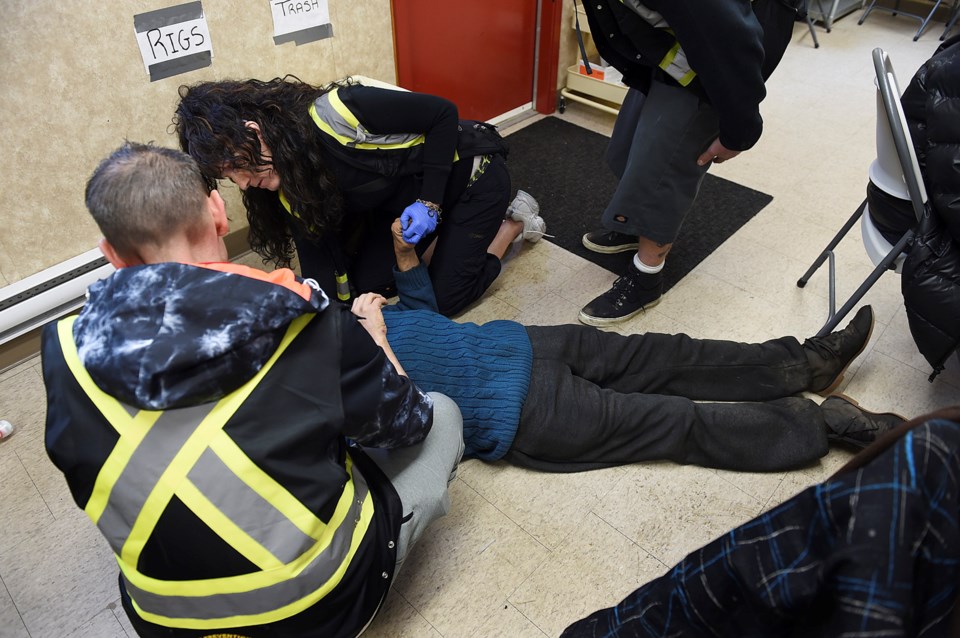One in five deceased organ donors in B.C. last year had the deadly synthetic narcotic fentanyl in their system when they arrived at a hospital, according to statistics supplied to the Courier from BC Transplant.
That equates to 19 per cent, or 23 people out of 121, who donated organs to people requiring transplants for such organs as a kidney, liver and lungs. BC Transplant did not have a breakdown on how many or what type of organs came from people who had fentanyl in their system at the time of death.
The agency also cautioned that not everyone who presented with fentanyl in their system necessarily died of a drug overdose, said Dr. David Landsberg, BC Transplant’s provincial medical director for transplant services.
“They may have been using drugs and had a head injury, which was the cause of their death,” Landsberg told the Courier. “The drug might have contributed to the behaviour that led to the death, but it doesn’t actually mean that they died from fentanyl.”
That said, Landsberg pointed out that not every donor admitted to hospital would have been tested for fentanyl. The circumstances of why a person was at hospital may not have required drug testing, he said.
“So we could have missed some because it’s not necessarily when they arrive in the emergency room,” he said, noting an additional 10 to 13 deceased donors had other types of drugs in their system when they arrived at the hospital. “That could have been marijuana, that could have been cocaine, it could have been a prescription drug.”
Unfortunately, he added, BC Transplant does not have “vigorous data” for previous years to determine whether there has been an increase in the number of deceased organ donors solely because of the opioid crisis.
The agency saw a 25 per cent increase in deceased organ donors last year but attributes that spike to a concentrated effort on the part of health care teams in hospitals to identify potential donors and support families in choosing organ donation.
“Hopefully the opioid crisis ends immediately, but we still believe our numbers [of donors] won’t go down because of that,” he said, referring to system changes and a shift in culture that fully supports organ donation as a normal end-of-life option.
The BC Coroners Service is expected to release new statistics Jan. 31 showing that more than 1,200 people are suspected of dying of an overdose in the province in 2017. Previous statistics have shown more than 80 per cent of deaths were connected to fentanyl.
Though many victims have been chronic users, and their overall health is in decline, Landsberg pointed out that people who were otherwise healthy are also among the hundreds of overdose victims.
“Part of the tragedy is young, pretty healthy people may have just been dabbling in recreational drugs and it’s an unintentional poisoning from contamination with fentanyl,” he said. “You see reports of this all the time — that a young person on the weekend was out with her friends, went to a bathroom, snorted cocaine and were found dead in the bathroom. So those people are obviously good potential donors.”
A combination of 121 deceased donors and 95 living donors allowed for 479 transplants last year. That's up from 423 in 2016, 422 in 2015 and 326 in 2014.
As of Jan. 1, a total of 638 people in B.C. were waiting for an organ transplant.



